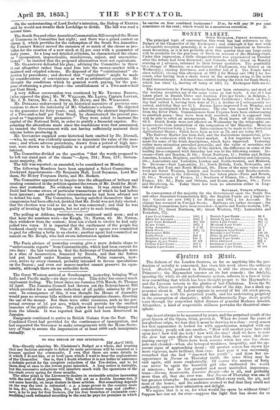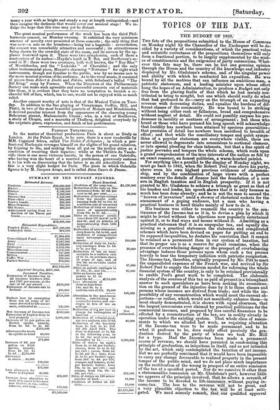Age is not always to be measured by years, and
the perpetual youth of the great Queen of the Opera, Grisi, proves it. When we count the years of her glorious reign, we fear that it must be drawing to a close : every season her first appearance is looked for with apprehension mingled with our expectation ; people ask one another, "How will another year have told upon her ? how will she look ? how will she sing ? shall we have to note the slow but sure effects of time upon that form, that voice, that sur- passing energy ?" There have been seasons when her star has shone pale and clouded—when she betrayed weakness, inequality, and the ap- parent signs of approaching decay ; till another season has shown her more vigorous, more brilliant, than ever. Last year it was universally remarked that she had "renewed her youth " ; and from her re- appearance in Norma on Thursday night, the same thing may be said again, still more emphatically. Of course the matron of forty can never be again the beautiful girl who enchanted the world at nineteen ; but in her grandest and most unrivalled impersona- tions—Norma Seiniraniide, Lacrezia Borgia—she is all and probably more than all, that she ever was. Her Norma of Thursday was ease of her greatest triumphs. Its announcement filled every stall, the pit., and most of the boxes' and the audience seemed to feel that, they could not sufficiently express their admiration and delight.
We rejoice that it is so, for what would the opera be without ? Suppose her star set for ever—suppose the light that has shone for so
many a year with so bright and steady a ray at length extinguished-and then imagine the darkness that would cover our musical stage! We in- dulge the hope that this time may yet be distant.



























 Previous page
Previous page